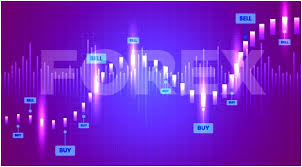
The Forex Market: A Gateway to Global Investment Opportunities
The forex market, short for the foreign exchange market, stands as one of the world’s largest and most liquid financial markets. It plays a pivotal role in facilitating international trade, investment, and global finance. In this article, we’ll explore the significance of the forex market as a gateway to global investment opportunities.
Understanding the Forex Market
The forex market is where currencies are bought and sold, and it operates as a decentralized marketplace. Traders engage in buying one currency while simultaneously selling another, commonly referred to as currency pairs.
Key Features of the Forex Market:
Market Size: The forex market boasts a colossal daily trading volume, exceeding $6 trillion. This immense size surpasses the combined trading volume of all the world’s stock markets.
Liquidity: The forex market’s liquidity ensures that participants can buy and sell currencies at almost any time without significantly affecting exchange rates. High liquidity also means low transaction costs.
Accessibility: Thanks to technological advancements and the proliferation of online trading platforms, the forex market is now accessible to individual retail traders. Anyone with an internet connection can participate.
Currency Pairs: Forex trading involves currency pairs, where one currency is exchanged for another. Major pairs, minor pairs, and exotic pairs offer diverse trading options.
24/5 Trading: The forex market operates 24 hours a day, five days a week, offering traders flexibility and the opportunity to respond to global events in real-time.
Role of Forex in Global Investment
The forex market plays a crucial role in global investment in various ways:
International Trade: The forex market serves as a fundamental platform for international trade by allowing the exchange of one currency for another. Businesses engage in forex transactions to facilitate imports and exports, ensuring smooth cross-border transactions.
Foreign Investment: Global investors utilize the forex market to buy and sell foreign currencies when investing in international assets, such as stocks, bonds, or real estate.
Central Banks and Governments: Central banks use forex market interventions to stabilize their domestic currencies, manage foreign reserves, and influence exchange rates. Governments use forex policies to support economic objectives.
Risk Management: Companies and financial institutions engage in forex markets to manage currency risk and protect against unfavorable exchange rate movements.
The Future of the Forex Market
As international trade and financial globalization continue to expand, the role of the forex market will remain a cornerstone of the global economy. Technological advancements will enhance accessibility and transparency, leading to more efficient and accessible forex trading.
In conclusion, the forex market is a global financial powerhouse that serves as the backbone of international trade, investment, and finance. Its liquidity, accessibility, and integral role in the global economy make it an essential component of the financial world. As the world’s economies evolve, the forex market will adapt and continue to play a central role in shaping the global economic landscape. Investors and traders can explore a world of opportunities and diversification through participation in the forex market, making it a gateway to global investment opportunities.